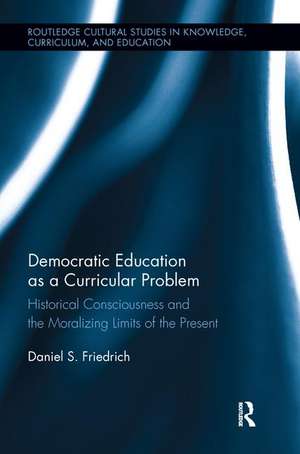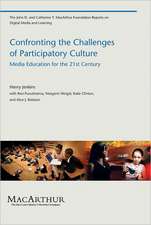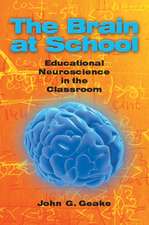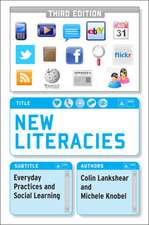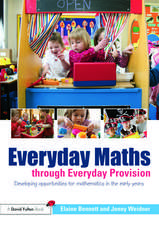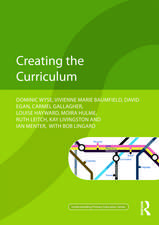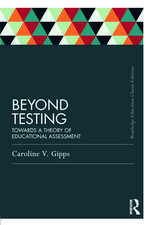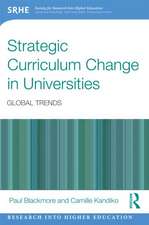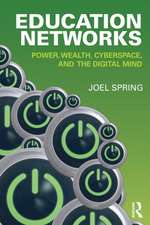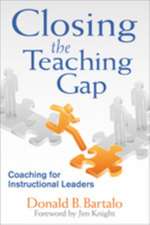Democratic Education as a Curricular Problem: Historical Consciousness and the Moralizing Limits of the Present: Routledge Cultural Studies in Knowledge, Curriculum, and Education
Autor Daniel Friedrichen Limba Engleză Paperback – 18 noi 2016
| Toate formatele și edițiile | Preț | Express |
|---|---|---|
| Paperback (1) | 353.59 lei 6-8 săpt. | |
| Taylor & Francis – 18 noi 2016 | 353.59 lei 6-8 săpt. | |
| Hardback (1) | 1047.52 lei 6-8 săpt. | |
| Taylor & Francis – 27 dec 2013 | 1047.52 lei 6-8 săpt. |
Preț: 353.59 lei
Nou
Puncte Express: 530
Preț estimativ în valută:
67.72€ • 69.77$ • 56.73£
67.72€ • 69.77$ • 56.73£
Carte tipărită la comandă
Livrare economică 22 februarie-08 martie
Preluare comenzi: 021 569.72.76
Specificații
ISBN-13: 9781138286764
ISBN-10: 1138286761
Pagini: 168
Ilustrații: 1 Line drawings, black and white; 5 Halftones, black and white
Dimensiuni: 152 x 229 mm
Greutate: 0.45 kg
Ediția:1
Editura: Taylor & Francis
Colecția Routledge
Seria Routledge Cultural Studies in Knowledge, Curriculum, and Education
Locul publicării:Oxford, United Kingdom
ISBN-10: 1138286761
Pagini: 168
Ilustrații: 1 Line drawings, black and white; 5 Halftones, black and white
Dimensiuni: 152 x 229 mm
Greutate: 0.45 kg
Ediția:1
Editura: Taylor & Francis
Colecția Routledge
Seria Routledge Cultural Studies in Knowledge, Curriculum, and Education
Locul publicării:Oxford, United Kingdom
Public țintă
Postgraduate and UndergraduateCuprins
Prologue: Democracy and the Normal 1. The Production of the Citizen as a Research Problem 2. Historical Consciousness as a Pedagogical Device in the Production of the Responsible Citizen 3. Legislating the Production of Responsible Citizens: Argentine Education Laws and the Framing of Darkness 4. The Mobilization of Historical Consciousness in the Narratives about the Last Dictatorship Presented in Textbooks and Other Didactic Materials 5. The Memoryscape in Buenos Aires: Re-Presentation, Memory and Pedagogy Concluding Thoughts: Re-Framing the Questions, Re-Reading the Curriculum
Descriere
By repositioning democratic education not as something that can be achieved by following a certain, proven process, but as an inherently paradoxical enterprise in its dealings with the tension between schooling as the intentional production of citizens and the uncertainties of democracy, an alternative way of reading the curriculum emerges. This book aims not at arriving at the right combination of theory, policy and praxis that will provide the democratic utopia, but at historicizing the discourses that have shaped the ways in which we think and act in the field of education.
